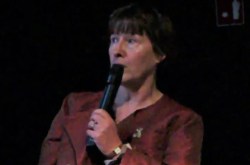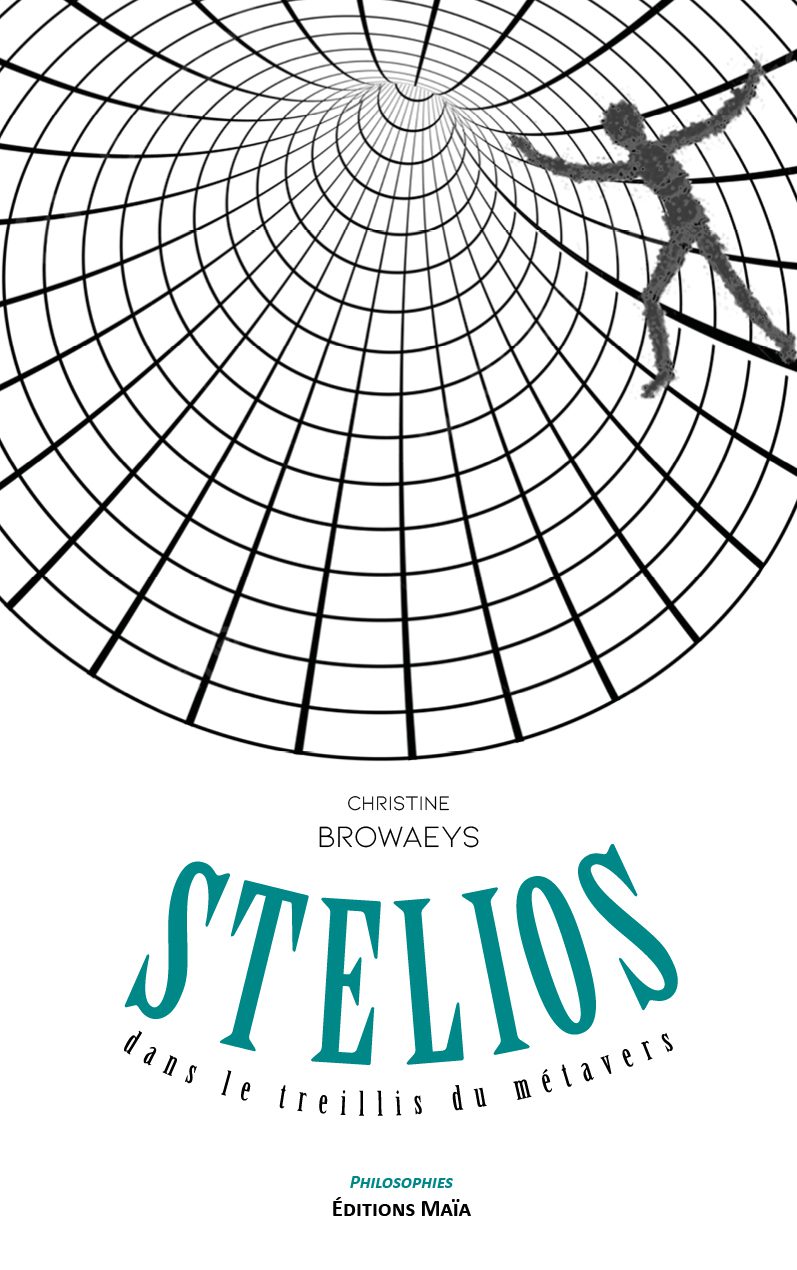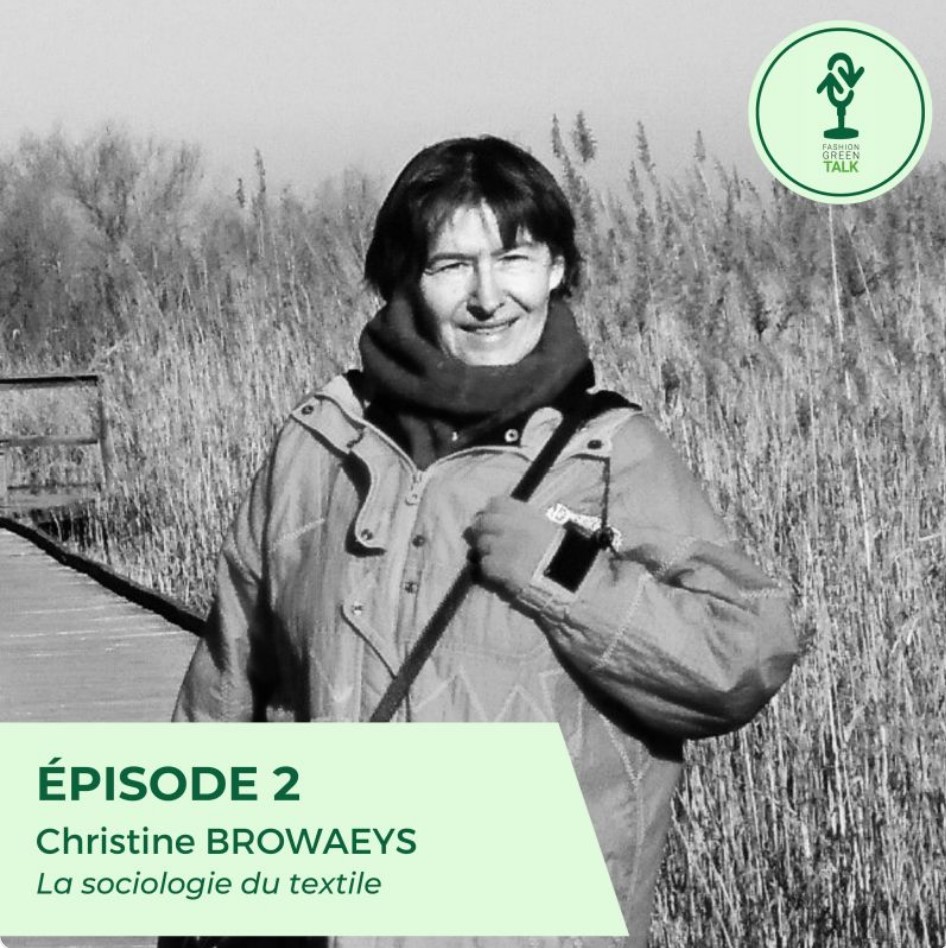Regarding texturgie
My Profile
Founder of T3Nel (ICT, Textiles, New Technologies), "texturgiste" engineer and sociologist, Christine Browaeys, is an expert in the sector of new sensitive materials combining textile textures and high technologies. She reflects on the relationships between the digital world and that of materials to imagine a relationship between man and matter in very rapid evolution. ©Youtube
My Approach
In 2014, I proposed the concept of “texturgy” to evoke the design of new sensitive materials combining textile textures and high (digital) technologies. Passionate about socio-philosophy, today, I try to broaden this approach to the “human texture” (the human body made of organic tissues) in its co-functioning with digital technologies.
What human sensitivity (with a body made of organic tissues and analog functioning) in a digital world?
Stelios in the metaverse lattice, by Christine Browaeys, September 2024
Follow Stelios's adventures to try to weave a shared imaginary fabric between reality and digital world.
Through the adventures of “Stelios in the lattice of the metaverse”, the textile metaphor opens the reflection on the weaving of our imaginations, between real and digital worlds. Which leads to questioning what makes sense between human beings today.
With a dual professional experience, digital and textile, I wrote this essay to highlight the importance of human imaginary world in the future of our society. As a “texturist” engineer and sociologist, I use the textile metaphor, with the symbolism of network weaving, to express how experiences in virtual universes fit into the imaginary apprehension of reality, to combine into a common “imaginary fabric”. Throughout the text, I inserted short tales evoking the adventures of Stelios, which echo the analysis developed.
La traduction anglaise (introduction) : "Stelios in the metaverse lattice"
Stelios dans le treillis du métavers, Christine Browaeys, Editions Maïa, Paris, coll. Philosophies, August 2023.
La référence ebook Kindle de "Stelios dans le treillis du métavers".
La table des matières de l'ouvrage "Stelios dans le treillis du métavers".
2ème épisode de Fashion Green Talk : la sociologie du textile, avec Christine Browaeys, avril 2024
Merci à Fashion Green Hub de m'avoir invitée à ce podcast !
La sociologie vise à avoir une meilleure appréhension des sociétés, de leur fonctionnement et de leur transformation. Pour Weber, le sociologue doit principalement s'efforcer de saisir la signification que donne un individu à son action (démarche compréhensive).
Dans l'exercice de son métier, l'ingénieur ou le designer, peut viser une approche plus relationnelle, chercher à être un médiateur et un intégrateur de compétences et de matériaux.
La technologie a profondément modifié la façon dont les individus perçoivent leur habillement. Aujourd'hui émerge l'idée l'idée d’une nouvelle sensorialité, à la frontière de la conception matérielle, une conception sensorielle qui inclurait l'expérience humaine
Ce qui me tient à cœur, c’est d'ouvrir la matière textile, d'essayer d'en faire un média du sensible. Aujourd'hui, nous devenons comme des "passeurs de matières".
Pour écouter le podcast de Fashion Green Talk

April 2021 - Our “analog” humankind: a handicap or a safeguard against all digital?
by Christine Browaeys
(French version published in Enviscope, “Tribunes Libres”, February 17, 2021)
Faced with the digital world that surrounds us, overwhelms us, suffocates us and constrains us, while providing us with benefits, we must not forget our deep humanity, of flesh and blood, limited in time. In a universe of data, we must not give up our word, at the risk of being reduced to the rank of machines.
In their article “On the interest of moving into the digital world” (ENS Lyon, 2012), Mathilde Glénat and Delphine Chareyron wrote: “the digital signal has the advantage of being easily and faithfully reproducible… on the other hand, the analog signal is sensitive to interference and can deteriorate over time… but it will always constitute the entry points (microphone) and the exit points (loudspeaker).”
Could our humanity, made up of sensations, emotions, and passions, be a handicap for switching to “all digital”?
Human life is part of a period of time that passes, between birth and death. Humans are born with a human body that they do not choose. As babies, they often take more than a year to walk, and develop for 15 to 20 years before becoming truly adult. If we compare their body to a technical object, it is only fully functional, or efficient, for a relatively short part of their life. Then their faculties slowly begin to diminish… This state of affairs has not changed. It is specific to all living beings, human or animal.
Each generation learns to perceive the world in its phenomenological bubble, by understanding its perceptive relationship to reality using the technical devices at its disposal (Seeing and Perceiving in the Digital Age, Stéphane Vial, 2015). In the digital age, “digital natives” instinctively perceive with digital tools, which changes their relationship to matter, time and space. But do human beings really have to learn to evolve in a different space, a space that would be completely resized and woven with digital, a “calculated” space? While there is a pleasure in chance, in the risk of the unexpected encounter, whether good or bad…
Like a "doudou"
Instantaneity is the big new thing today. Digital natives have a kind of “plasticity” of adaptation to the multiple flows of information that they continually receive and that they seem to metabolize easily. Increasingly, memory is externalized outside the body thanks to technical processes such as transclusion, reticularity, etc. This era is a time of transition. It could give the world more diversity by hybridizing analog approaches and approaches that are already digital from the outset. Digital devices also contribute to the reassurance of their users, like a comfort blanket does, which leads to a need for permanent interaction.
But the paradox is that thinking for oneself represents a risk-taking, an assumed solitude in our intimate sphere. Will digital technology, as it presents itself today, give us time to stop, or are we heading towards a “digital-human” world where it will become impossible to create “deliberate bifurcations”, to use the expression of the philosopher Bernard Stiegler?
Aristotle said that "man is by nature a political animal". Let us not let human beings escape the political choices that will shape the future of our society. "Therefore if the power of speaking is taken away from me, For me I would just as soon lose humanity too, And change my essence into that of a beast" (Le Dépit amoureux, Molière,1656).


